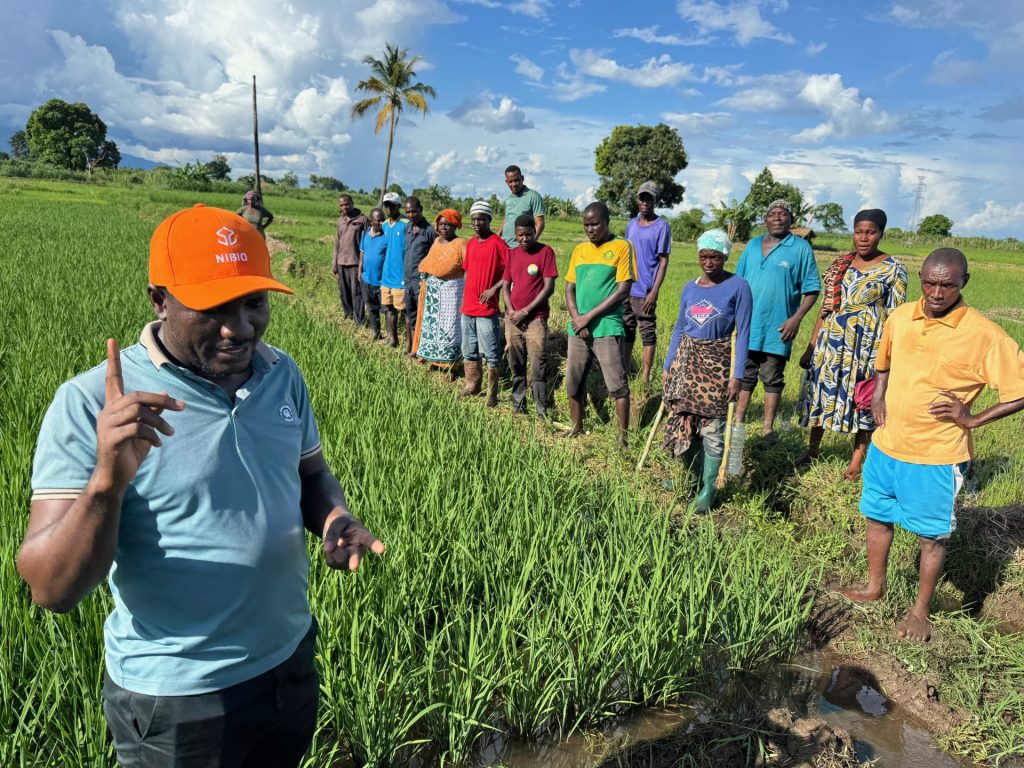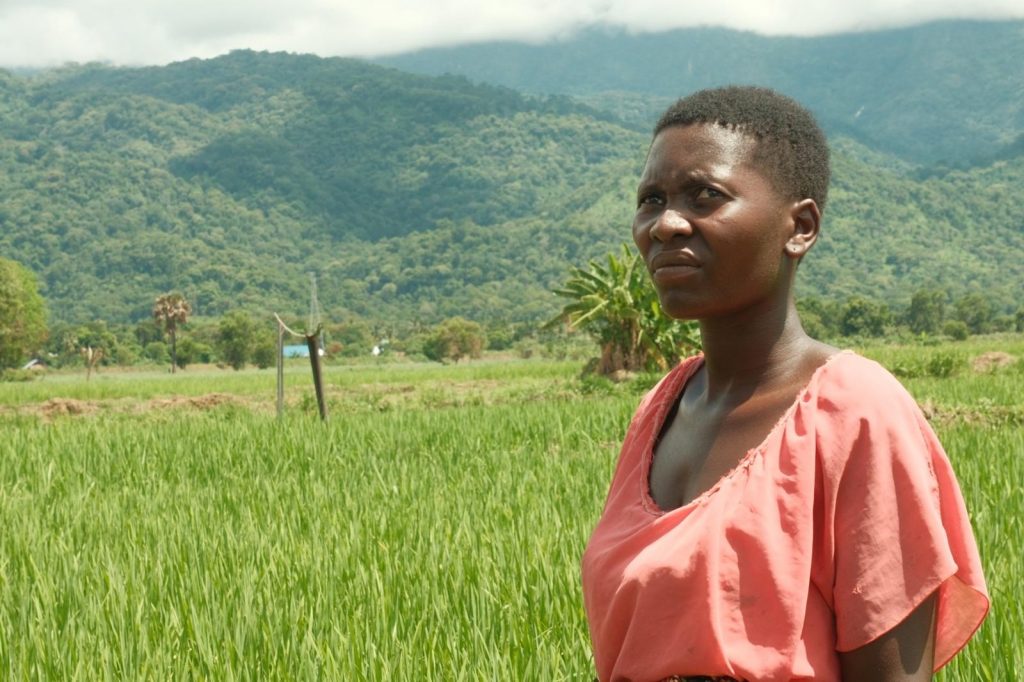Farmers adoption of SRI practices increased in Kilombero district


SRI-Tanzania project team members from NIBIO and TARI together with representative from Norad/the Ministry of Foreign Affairs, Norway (the funding agency), visited the project villages in Kilombero district during 24 to 26 March, 2025. The overall objective of the visit was to assess the progress of the project activities since the start of the project in November 2022, interact with SRI farmers, extension and district agricultural officers, field researchers and stakeholders The team paid a courtesy call to institutions such as TARI ifakara research station, District agricultural office, and IUCN field office that are collaborating with the project and using the project results further to upscale the SRI technologies.
It was the first time for farmers in Ichonde village to implement SRI practices in their fields. Kalima Sadalo (a woman farmer) shared her experiences and how she has benefitted from the project by implementing SRI. The direct benefits include use of fewer seeds to raise nursery , grow quality seedlings of 10-14 days old and suitable for transplanting single seedling per hill in rows with a proper spacing of 25 x 30 cms, and weeding using push weeders between the rows that has resulted in producing more tillers and more yield compared to conventional practices of rice cultivation. She has participated in SRI practical training including Mat Nursery establishment provided by the project.
In Msolwa Ujamaa irrigation scheme, Fatuma Kabriuma (a woman farmer) has also shared her feedback and the benefits she got by adopting SRI practices. Rice yield on her farm has increased by over two-fold compared to pre-SRI interventions by the project.
In Mkula irrigation scheme, the youth groups (including girls) in Mangula village were trained on Mat nursery establishment and other SRI practices. They are now providing services and getting income for e.g. providing services to set up Mat nursery in other areas, row transplanting etc. One example is, a lead farmer Anna who has been asked to set up Mat nurseries by farmers even outside the project areas. She can now pay for children school fees and cover other household expenses. Due to the project intervention, her livelihoods have been improved which is the key impact of the project.
Despite the above-mentioned benefits by SRI, farmers are facing challenges that include extremes weather events (droughts and floods), poor irrigation structures that hinders alternate wetting and drying irrigation, and insects/diseases.
On 27 March, half a day workshop was organized in Morogoro to give debriefings on the SRI project, where Dr. Sekhar Nagothu (Project Coordinator) from NIBIO presented the overall SRI project progress made and targets achieved over the baseline indicators. Following his presentation, Dr. Bilaro (PC) from TARI also gave detail descriptions on the SRI work progress in the five project districts. Helle Biseth from Norad, appreciated the work done so far by the project partners and stakeholders. She encouraged the farmers and other stakeholders to continue working together with project partners and address risks.